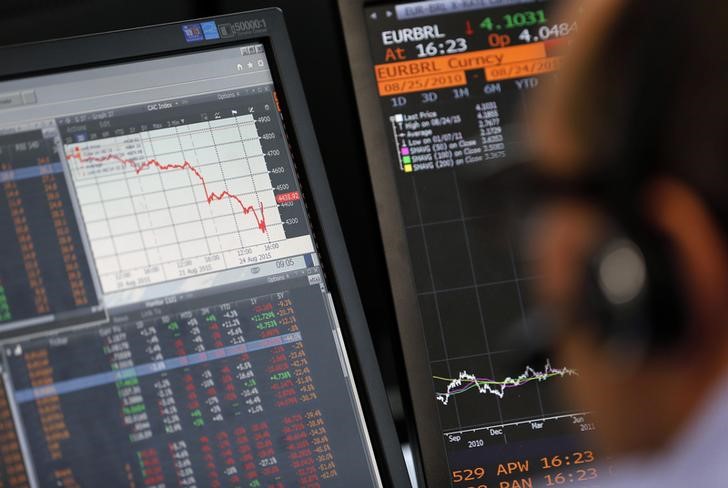By Michael Flaherty and Svea Herbst-Bayliss
(Reuters) - Hedge funds wounded by recent stock market gyrations may struggle to pressure companies and reap the benefits of their activist campaigns, lawyers and bankers at Tulane Law School's corporate law conference in New Orleans said this week.
William Ackman, one of the world's biggest activists, sold a chunk of U.S. snack maker Mondelez International Inc (NASDAQ:MDLZ) to make up for a hole in his Pershing Square (NYSE:SQ) portfolio after Valeant Pharmaceuticals International Inc (NYSE:VRX) lost half its value.
More hedge fund managers feel the need to de-risk their portfolios, Avinash Mehrotra, co-head of Goldman Sachs (NYSE:GS)' M&A shareholder advisory group, said at the conference. Funds facing the most pressure may be those that allow clients to get money out fastest.
"If you're running an activist strategy, you generally need two, three, four quarters to prosecute that strategy. If you have got a quarterly call ... you have a mismatch on the asset side of your equation, which is your holdings, and the liability side, which is the call on your capital," Mehrotra said.
As a group, activists have already lost 6.52 percent in the first two months of 2016, far more than the average hedge fund's 2 percent drop, according to data from Hedge Fund Research.
Ackman's Pershing Square, battered by Valeant, is off 22 percent through the middle of March, while Nelson Peltz' Trian Fund Management lost 7 percent and Barry Rosenstein's Jana Partners fell 7.3 percent in the first two months of the year.
But the biggest fallout may be among the smaller funds that seized on the wave of assets that flowed into the sector, attracted by the outsized returns of brand-name agitators such as Ackman and Carl Icahn.
For example, Jerome Lande folded his Coppersmith Capital Management into a bigger firm, Scopia Capital, where he is now in charge of special situations, people familiar with the matter said, speaking on condition of anonymity. Scopia, which had roughly $10 billion in assets last year according to the most recent available regulatory filing, did not respond to a request for comment.
Willem Mesdag's Red Mountain is locking up its investors' capital for longer after losses, essentially turning the activist hedge fund into more of a private equity-type vehicle, the sources said. Red Mountain, which had around $500 million in assets in 2015, did not respond to a request for comment.
Daniel Lewis shuttered his Orange Capital this year, and the founders of LionEye Capital shut that hedge fund down last year.
"There will be a shake-out among some of the ankle biters and some of the others," David Katz, a partner at Wachtell, Lipton, Rosen & Katz, said at the conference, referring to smaller activists.
However, the activism model is hardly in danger of extinction, bankers and lawyers said. Year to date, activists have launched 96 U.S. campaigns, a high historical figure, though 34 percent below the pace set in the same period in 2015.
Even top activists, however, acknowledge that the old play book of pushing for stock buybacks or quick sales is outdated. Starboard Value's Jeffrey Smith said recently that simply calling for a company to buy back shares "is not a plan," adding: "That does not create value."
The stock gains from such moves have already been squeezed. The S&P 500 buyback index, which measures the performance of the top 100 stocks with the highest buyback ratios, currently shows an 8.8 percent one-year loss.
(This version of the story corrects the spelling of the name in fourth paragraph.)
